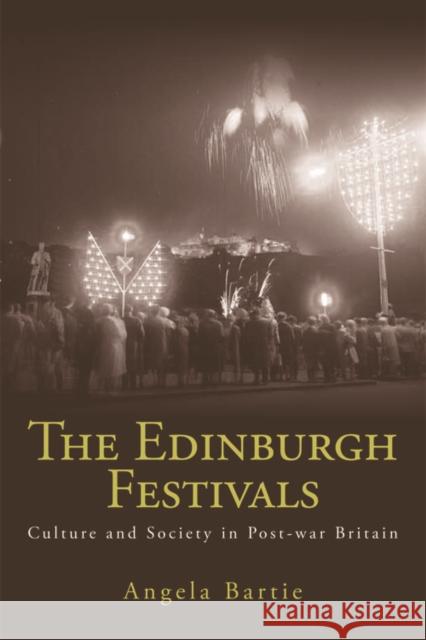The Edinburgh Festivals: Culture and Society in Post-war Britain » książka
The Edinburgh Festivals: Culture and Society in Post-war Britain
ISBN-13: 9780748670307 / Angielski / Twarda / 2013 / 272 str.
The Edinburgh Festivals: Culture and Society in Post-war Britain
ISBN-13: 9780748670307 / Angielski / Twarda / 2013 / 272 str.
(netto: 466,45 VAT: 5%)
Najniższa cena z 30 dni: 362,69
ok. 30 dni roboczych.
Darmowa dostawa!
'The Edinburgh Festival' - and the Fringe that it inspired - has been the hub for numerous 'culture wars' since its inception in 1947. This book is the first major study of the origins and development of this leading annual arts extravaganza, examining a moving stage of debate on such issues as the place of culture in society, the practice and significance of the arts, censorship, the role of organised religion, and the meanings of morality.
From the beginning, the Edinburgh International Festival sought to use culture to bolster European civilisation. For this it was considered for the Nobel Peace Prize in 1952. Culture was seen by churches as a 'weapon of enlightenment', by the labour movement as a 'weapon in the struggle', and by the new generation of artistic entrepreneurs coming to the fore in the 1960s as a means of challenge and provocation. High-profile controversies resulted, such as the nudity trial of 1963 and the scandal over a play about bestiality in 1967.
These ideas, conservative and liberal, elite and diverse, traditional and avant-garde, have all clashed every August in Edinburgh, making the Festivals an effective lens for exploring major changes in culture and society in post-war Britain.











